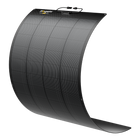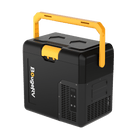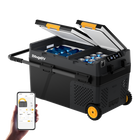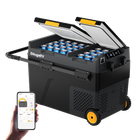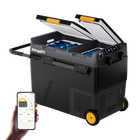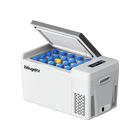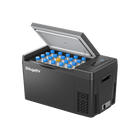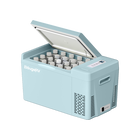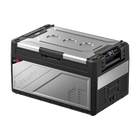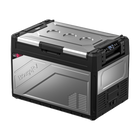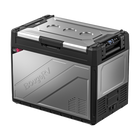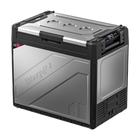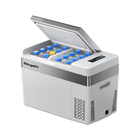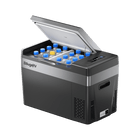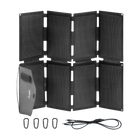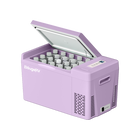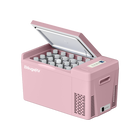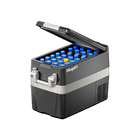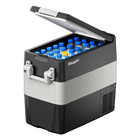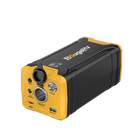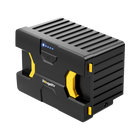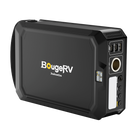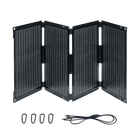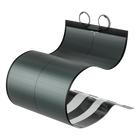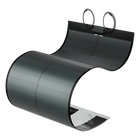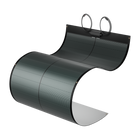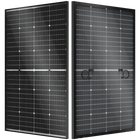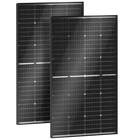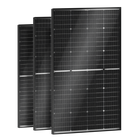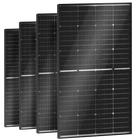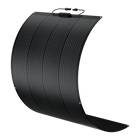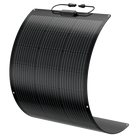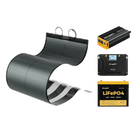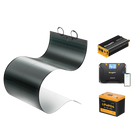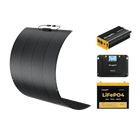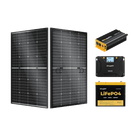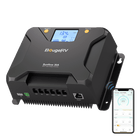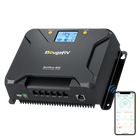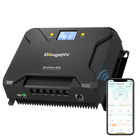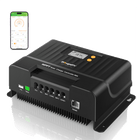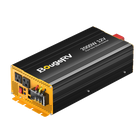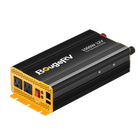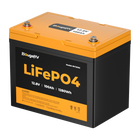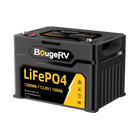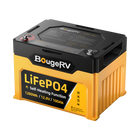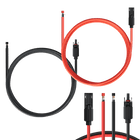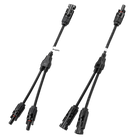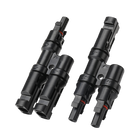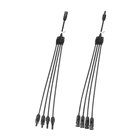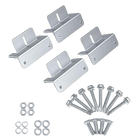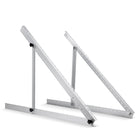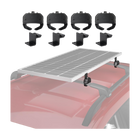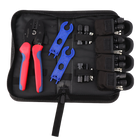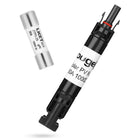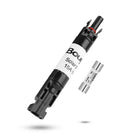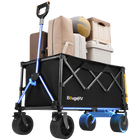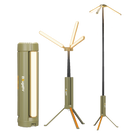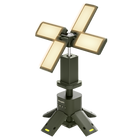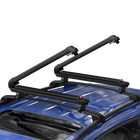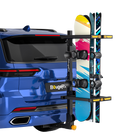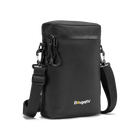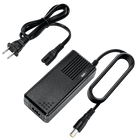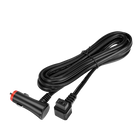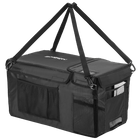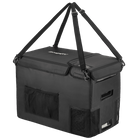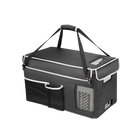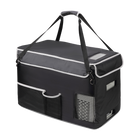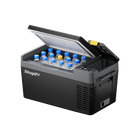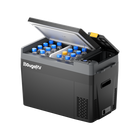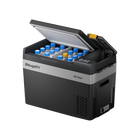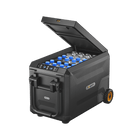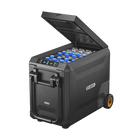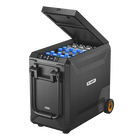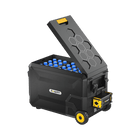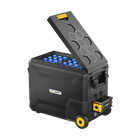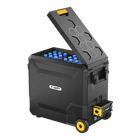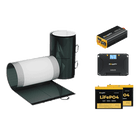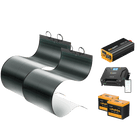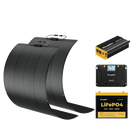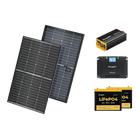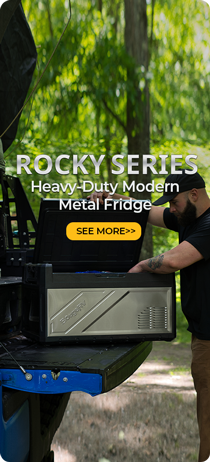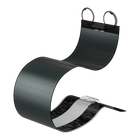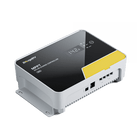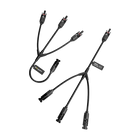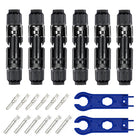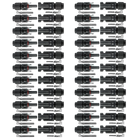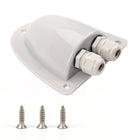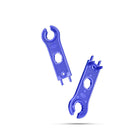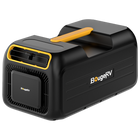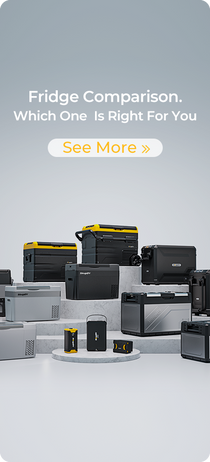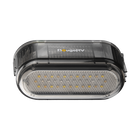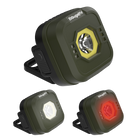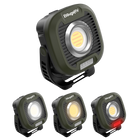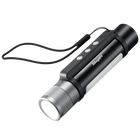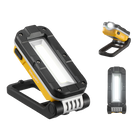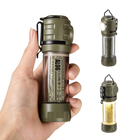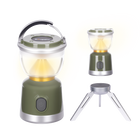Solar Panel Efficiency Guide: Tips, Products, and More


Solar panels are a highly reliable source of cost-effective clean energy. But the exact amount of power that you get from your panels can vary significantly based on your solar panel conversion efficiency – or the rate at which the solar panels convert sunlight into power.
There are many different factors that impact solar panel conversion rates, which can make it difficult to optimize yours. We put together this guide to help. It covers not only the best-efficiency solar panels on the market but also tips and tricks for improving the efficiency of your current panels.
So, let’s get into it.
What Is Solar Panel Efficiency, Exactly?
Throughout the course of an average day, a solar panel will receive significantly more sun than it can convert into usable power. Solar panel efficiency is a measurement of how much of this sun the solar panels are able to convert into power. That’s why the measurement is sometimes called solar panel conversion efficiency or the solar panel conversion rate.
Modern solar panels are about 15-20% efficient. This means if you put a new solar panel on your roof, you can typically expect it to convert between 15 and 20% of the sunlight that it receives into usable power.
That’s why optimizing solar efficiency is so important. The more effective your panels are at converting sunlight into power, the more free energy you get for your home or mobile solar application.
Factors That Influence Solar Panel Efficiency
The first step in maximizing your solar panel efficiency is understanding the different factors that can influence it. We cover the major ones, which you have at least some degree of control over in the subheadings below.
1. Temperatures

Solar panels lose efficiency in extreme weather. When temperatures are below 59 degrees Fahrenheit or higher than 95 degrees Fahrenheit (15 - 35 degree Celsius), your panels won’t be able to convert as much sunlight into usable power.
You obviously can’t control the temperature. But it’s a factor to keep in mind as you work to optimize efficiency. If a day is exceptionally cold or hot, you can’t reasonably expect to hit the same levels of efficiency that you would on a day with temperatures between 59 and 95 degrees Fahrenheit.
2. Panel Orientation
Next up – panel orientation. This refers to how you position your solar panels relative to the sun. People also talk about “tilt” when describing this factor, which is basically how you angle your panels to capture the sun.
The key idea here is that your goal should be to orient your solar panels to receive as much direct sunlight per day as possible. Doing this will ensure the panels receive sun for more hours during the day and at higher intensities to improve solar conversion rates.
Some of this is outside of your control. For example, you may have a tall tree or building shading your roof. But you can still try to orient your panels to receive the most amount of sun possible, given your home’s limitations.
3. Shade
As touched on in the previous section, shade can also impact the efficiency of your solar panels. When your panels are covered by shade from trees, buildings, and other obstacles, they receive less sunlight, which makes them less efficient.
If your panels receive a lot of shade, you may need to move them. It could also make sense to remove obstacles in the way of the panels if possible.
4. Cleanliness

One of the efficiency factors you have the most control over is the cleanliness of your solar panels. Cleaner solar panels convert a higher percentage of the sunlight they receive into usable electricity. This is because dust and dirt can accumulate and block some of the sunlight from reaching the panel.
This is why it’s also important to remove excess snow and ice accumulation from your solar panels if you live somewhere that’s an issue. These can also block sunlight from reaching your panels and decrease efficiency.
5. Panel Age
Another factor to consider is the age of your solar panels. Most modern solar panels are designed to last for upwards of 20 or 25 years. But efficiency declines over time. The longer you wait to replace your panels, the more pronounced the efficiency drop-off will become.
So, if you’re starting to notice old solar panels producing less energy than they used to, that could be a sign that it’s time to purchase an upgrade. We cover some examples of high-efficiency solar panels in a later section.
6. Solar Panel Cell Quality and Type
Finally, the type of solar cells your solar panel uses and the quality of those cells can impact efficiency. Generally, monocrystalline solar panels are the most efficient cells on the market. They tend to cost more upfront but should pay for themselves over time.
This is also a reason why it’s important to purchase your solar panels from a reputable provider. You need to know that the solar panel cell quality is solid, or else you risk paying full price for a set of solar panels with built-in efficiency deficiencies.
Solar Panel Efficiency by Panel Type
If you’re ready to purchase more efficient solar panels, the first step is figuring out which type of panel to buy. Here are the three most common options and a rundown of how they compare from an efficiency perspective.
Monocrystalline

Monocrystalline solar panels are the most efficient solar cells on the market, all other things being equal. Each cell is made out of a single silicon crystal, which allows them to achieve their industry-leading efficiency. However, you typically have to pay more for these as well.
Polycrystalline
Polycrystalline solar cells are created by breaking up several pieces of silicon into smaller fragments and then melting them together. They’re typically more affordable than monocrystalline cells but aren’t as efficient.
Thin-film

You might also consider thin-film solar panels, but these are the least-efficient solar cells on the market. They’re made out of a few different materials, including silicon, telluride, and selenide.
The advantage of thin-film solar panels is that they’re flexible. This makes them a good option for uneven surfaces where standard solar panels don’t work. For example, you might supplement an existing solar energy system with a few thin-film panels to start getting energy out of places on your roof that would otherwise be wasted.
Tips for Maximizing Your Solar Panel Conversion Efficiency
So – now that we’ve covered the factors that matter for solar panel efficiency, we can start looking at some practical tips for improving your system’s conversion efficiency. Here are some ideas.
1. Orientate Your Panels Properly
First, make sure that you position your solar panels with the optimal panel orientation and tilt. For those of us in the northern hemisphere, this means a southern orientation to ensure the panels capture the sun from sunrise to sunset.
You also want to tilt your panels in the direction that will give them the most sun. But that will depend on where you live in the northern hemisphere and how your roof is positioned.
2. Keep Your Panels Clean
Next, make sure that you’re cleaning your solar panels every six to twelve months. Doing this will keep things like dust and pollen from accumulating on your panels and reducing the amount of sun they’re able to collect.
You may even need to clean your panels more frequently than once or twice per year if you live in certain areas. For example, after a dust storm in the desert, you would probably benefit from cleaning your solar panels even if you had just done so a few months earlier. The same is true after ice and snow storms for those in colder climates.
3. Manage Shade
You can also improve the efficiency of your solar panels by managing the shade they receive properly. That doesn’t necessarily mean removing large structures from the surrounding area. It could be as simple as removing twigs and branches from your solar panels when they accumulate or keeping a tree trimmed to avoid excess shading.
4. Invest in More Efficient Solar Panels
Finally, you may also want to consider simply purchasing a more efficient set of solar panels – especially if you’ve had your current set for a while now. As we told you earlier, solar panels lose efficiency over time, so if you’re already following the tips we’ve covered above and are still experiencing efficiency loss, it could be time for a new solar energy system.
The Best Efficiency Solar Panels From BougeRV

At BougeRV, we sell a wide variety of 12V solar panels, with efficiency rates reaching up to 23%, designed for different purposes. Some of these are among the most efficient on the market.
For example, you might consider our 200W monocrystalline solar panel. It’s crafted with premium 9BB monocrystalline cells, which deliver superior conversion efficiency than the competition. They’re also priced extremely affordably. You can pick one up for just $249.99 and buy as many or as few as you need for your unique system.
We also carry a 400W mono solar panel. This is the same as our 200W model but with double the energy-creation capabilities. It’s a good fit if you’re looking to generate more power with less space for your house or RV.
Finally, we also have our 200W flexible solar panel. It’s also made with high-efficiency solar materials but is bendable as well. This makes an ideal fit for roofs and camper vans with uneven surfaces. It can act as a standalone solar solution or supplement an existing setup, depending on your needs.
Conclusion
You can take steps to improve the efficiency of any solar panels by keeping them clean, orienting them properly, and managing the shade they receive. But if you truly want to optimize efficiency, it may be time to invest in a new model. Monocrystalline solar cells are the most efficient and could be the fit for your needs.
You can take a look at the BougeRV solar panel store to learn more about your options.
The Best Solar Efficiency Solar Panels FAQs
1. What type of solar panels have the highest efficiency?
Monocrystalline solar panels tend to have the highest efficiency. The materials they use and the way they’re constructed allow them to convert a higher percentage of the sunlight they receive into usable power for your home or mobile solar application.
2. Does temperature impact solar panel conversion rates?
Yes, temperature can have an impact on the efficiency of your solar panels on both ends of the thermometer. Temperatures above 95 degrees Fahrenheit and below 59 degrees Fahrenheit can both lead to decreased solar energy efficiency.
However, you can still find solar panels that perform efficiently in temperatures ranging from -40°F to 185°F.
3. How do I make my solar panels more efficient?
You can make your solar panels more efficient by cleaning them more consistently, managing the shade they receive, and orienting them correctly so that they receive as much sun as possible throughout the day.
If your solar panels are 15 to 20 years old, you may need to replace them with a newer model to optimize your solar energy system’s efficiency.






